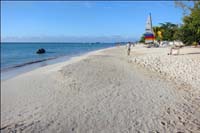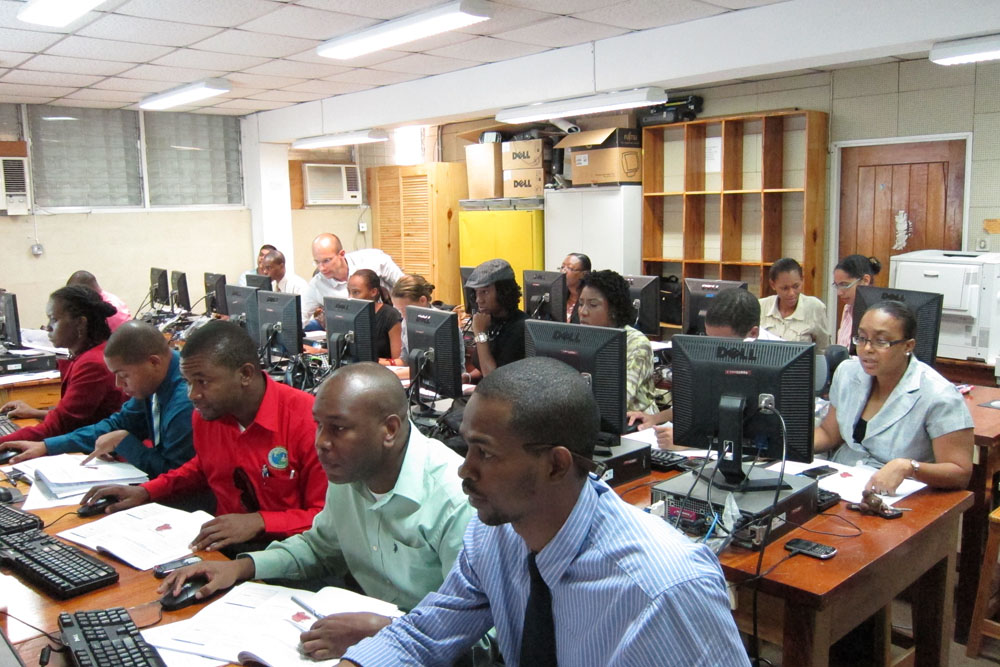resource
May. 22 2012
Activity
RIVAMP
Project description
The Risk and Vulnerability Assessment Methodology Development Programme (RiVAMP) is a methodology developed by UNEP to quantify the role of ecosystems for Disaster Risk Reduction (DRR); Climate Change Adaptation (CCA) as well as other benefits for sustainable development. RiVAMP is across four of the six UNEP priorities (disaster risk and conflicts, climate change, environment governance and ecosystems management). The methodology was initiated as a pilot study in Jamaica, which government requested UNEP to focused on the issue of beach erosion in Negril (Western Jamaica) and revealed that the main trigger of beach erosion was the decline of coastal ecosystems due to land-based pollution and direct impacts (seagrass manual removal and inappropriate fishing practices and related impacts on the reef). See RiVAMP-Negril and the RiVAMP-Negril report for more details.
 Negril beach Negril beach |

GIS and remote sensing analysis of erosion rate versus ecosystems and other contextual parameters. |
The RiVAMP methodology will now be applied in different regions and different ecosystems. The next RiVAMP study will focus on the role of deforestation on soil erosion in Madagascar.
In order to disseminate the RiVAMP methodology, a training was prepared. It is based on free open-source software. You can download the RIVAMP-training tutorial manual, data and software.
A RiVAMP training was provided in Kingston at the University of West Indies in December 2011. 21 experts participated to learn how to conduct a RiVAMP analysis.

